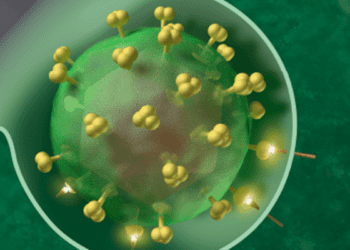Episiotomies and epidurals reduce odds of obstetric anal sphincter injury
Image: PD
1. Women receiving epidural analgesia were less likely to experience an anal sphincter injury during vaginal delivery.
2. Among women whose babies were delivered with vacuum extraction, those receiving episiotomies were less likely to suffer an obstetric anal sphincter injury.
Evidence Rating Level: 2 (Good)
Study Rundown: This study used delivery data from over 200,000 primiparous women who delivered vaginally to determine risk factors for anal sphincter injury, a significant cause of morbidity following vaginal delivery. This investigation identified modifiable behaviors in labor management (epidurals, episiotomies in vacuum deliveries) that were associated with decreased odds of anal sphincter injury. Previous studies have yielded mixed results, though the interaction of modifiable risk behaviors has not been well-studied. The present work adds to the existing literature by employing a large study sample and assessing interactions between risk factors.
Results may not be generalizable to populations with different ethnic compositions. Additionally, it is unknown how long-term adverse outcomes following obstetric anal sphincter injury and repair compare to those associated with episiotomy and repair. Future studies might stratify results by birthweight and include the prevalence of long-term outcomes.
Click to read the study in the American Journal of Obstetrics & Gynecology
Relevant Reading: Clinical review: obstetric anal sphincter injury
In-Depth [retrospective cohort study]: This study used the Danish Medical Birth Registry to identify primiparous women with a vaginal delivery who experienced an obstetric anal sphincter injury (n=13,907) and those who did not (n=200,349) to identify sphincter injury risk factors. Measured risk factors were maternal (age, BMI, year of delivery), fetal (weight, head circumference, gestational age, presentation) and related to labor management (labor induction and augmentation, epidural, vacuum extraction, episiotomy, forceps, shoulder dystocia).
Epidural use was associated with decreased odds of sphincter injury (OR 0.84, CI 0.81-0.88). Vacuum-assisted vaginal delivery was associated with an increased odds of injury (OR 2.99, CI 2.86-3.12), though the likelihood of injury was reduced when episiotomy was used in conjunction with vacuum extraction (OR 1.80, CI 1.68-1.93). Forceps-assisted vaginal delivery, large birth weight and shoulder dystocia were also associated with increased odds of injury.
By Denise Pong, MPH and Leah Hawkins, MD, MPH
More from this author: Fetal inflammatory response syndrome linked to poor neonatal outcomes, Induced and augmented labor associated with autism, Viagra provides pain relief in primary dysmenorrhea, Longer duration of breastfeeding improves childhood cognition, Lower vulvar cancer-related mortality in African American
© 2013 2minutemedicine.com. All rights reserved. No works may be reproduced without expressed written consent from 2minutemedicine.com. Disclaimer: We present factual information directly from peer reviewed medical journals. No post should be construed as medical advice and is not intended as such by the authors, editors, staff or by 2minutemedicine.com. PLEASE SEE A HEALTHCARE PROVIDER IN YOUR AREA IF YOU SEEK MEDICAL ADVICE OF ANY SORT.









